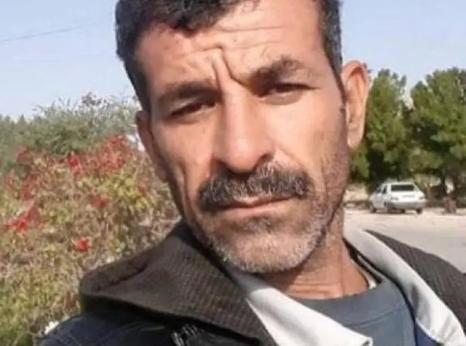Iran: Protester Sentenced To Death In Unfair Trial

Mohsen Deris, Abbas Deris’ brother, was also arrested the same day – 8 December 2019 - as Abbas Deris and accused of being an accomplice to the killing of a police official in Mahshahr on 18 November 2019. Iranian state media aired Mohsen Deri’s forced “confessions” of firing a gun towards security forces during protesters just weeks after his detention in late December 2019. Mohsen Deris’ lawyer announced that he was acquitted of the charges in his trial by the Revolutionary Court. Mohsen Deris also has a pending case before Branch Three of Criminal Court 2 in Khuzestan province on the same allegations.
In a video circulated online in mid-July 2023, Abbas Deris’ three children urge for the world to help in calling for their father’s conviction and death sentence to be overturned amid a plea that “we have no one left but our father” in reference to their mother’s death shortly after Abbas Deris’ arrest.
On 15 November 2019, following a sudden announcement by the government about a significant overnight increase in the price of fuel, tens of thousands of people across Iran took to the streets in protest. The focus of the protests quickly expanded to include broader grievances against the political establishment and generating demands for transformation of the country’s political system, including constitutional reforms and an end to the Islamic Republic system. Iran’s security forces used unlawful force, including live ammunition, metal pellets, tear gas and water cannons against protesters and bystanders. Amnesty International has documented the details of hundreds of unlawful killings of protesters and bystanders, including at least 23 children, killed by security forces during the crackdown on the mass protests between 15 and 19 November 2019, including in Mahshahr, Khuzestan province. The authorities continue to cover up the real number of those unlawfully killed by security forces during November 2019 nationwide protests, and they deny and distort the truth about the circumstances surrounding the killings. During the protests, the authorities implemented a near-total internet shutdown, which stopped people inside Iran from being able to share images and videos of the lethal crackdown with the rest of the world.
Anyone arrested or detained on a criminal charge must be treated in full compliance with Iran’s human rights obligations including rights to a fair trial. These include the rights to choose one’s own lawyer; to access effective legal assistance from the time of arrest and throughout the pre-trial and trial proceedings; to be brought promptly before an ordinary civilian judge; to challenge the lawfulness of detention before an independent, impartial tribunal; to be presumed innocent; to remain silent and not to be compelled to incriminate oneself or to confess guilt; to obtain full access to relevant evidence; to not be detained on vague charges; to examine and cross-examine witnesses; to receive a fair, public hearing before a competent, independent and impartial tribunal; and to be provided with a public, reasoned judgement. Amnesty International has documented a pattern of systematic violations of the rights to a fair trial in Iran from the time of arrest and throughout the investigation, trial and appeal proceedings. Courts routinely ignore allegations of torture and other ill-treatment, without ordering an investigation, and rely on torture-tainted “confessions” to issue convictions and sentences, including in death penalty cases. In view of the irreversible nature of the death penalty, the proceedings in capital cases must scrupulously observe all relevant international standards protecting the right to a fair trial. Under international law, the imposition of the death penalty following an unfair trial constitutes an arbitrary deprivation of the right to life.
Amnesty International opposes the death penalty in all cases without exception. The death penalty is a violation of the right to life and the ultimate cruel, inhuman and degrading punishment. Amnesty International has consistently called on all states that retain the death penalty, including Iran, to establish an official moratorium on executions, with a view to completely abolishing the death penalty.